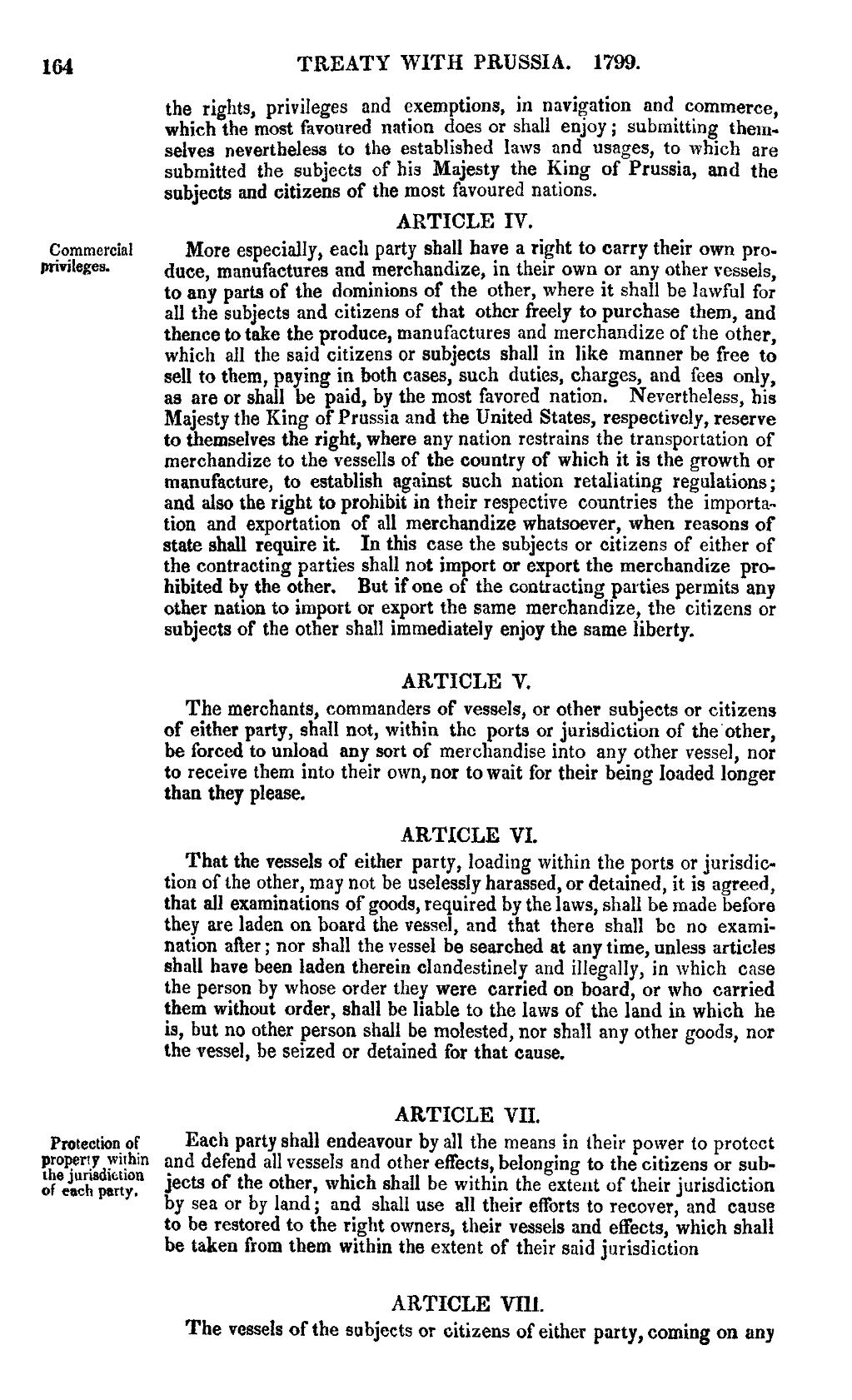[64 TREATY WITH PRUSSIA. 1799. the rights, privileges and exemptions, in navigation and commerce, which the most favoured nation does or shall enjoy; submitting them. selves nevertheless to the established laws and usages, to which are submitted the subjects of his Majesty the King of Prussia, and the subjects and citizens of the most favoured nations. ARTICLE IV. Commercial More especially, each party shall have a right to carry their own proprivilcges- duce, manufactures and merchandize, in their own or any other vessels, to any parts of the dominions of the other, where it shall be lawful for all the subjects and citizens of that other freely to purchase them, and thence to take the produce, manufactures and merchandize of the other, which all the said citizens or subjects shall in like manner be free to sell to them, paying in both cases, such duties, charges, and fees only, as are or shall be paid, by the most favored nation. Nevertheless, his Majesty the King of Prussia and the United States, respectively, reserve to themselves the right, where any nation restrains the transportation of merchandize to the vessells of the country of which it is the growth or manufacture, to establish against such nation retaliating regulations; and also the right to prohibit in their respective countries the importation and exportation of all merchandize whatsoever, when reasons of state shall require it. In this case the subjects or citizens of either of the contracting parties shall not import or export the merchandize prohibited by the other. But if one of the contracting parties permits any other nation to import or export the same merchandize, the citizens or subjects of the other shall immediately enjoy the same liberty. ARTICLE V. The merchants, commanders of vessels, or other subjects or citizens of either party, shall not, within the ports or jurisdiction of theother, be forced to unload any sort of merchandise into any other vessel, nor to receive them into their own, nor to wait for their being loaded longer than they please. ARTICLE VI. That the vessels of either party, loading within the ports or jurisdiction of the other, may not be uselessly harassed, or detained, it is agreed, that all examinations of goods, required by the laws, shall be made before they are laden on board the vessel, and that there shall be no examination after; nor shall the vessel be searched at any time, unless articles shall have been laden therein clandestinely and illegally, in which case the person by whose order they were carried on board, or who carried them without order, shall be liable to the laws of the land in which he is, but no other person shall be molested, nor shall any other goods, nor the vessel, be seized or detained for that cause. ARTICLE VII. protection or Each party shall endeavour by all the means in their power to protect property within and defend all vessels and other effects, belonging to the citizens or sub-
- l;°e·L‘
- £°g:;Q;’}‘ jects of the other, which shall be within the extent of their jurisdiction
by sea or by land; and shall use all their efforts to recover, and cause to be restored to the right owners, their vessels and effects, which shall be taken from them within the extent of their said jurisdiction ARTICLE VI11. The vessels of the subjects or citizens of either party, coming on any
